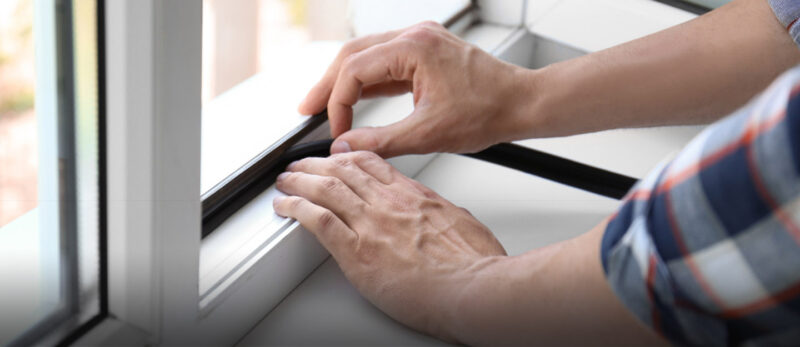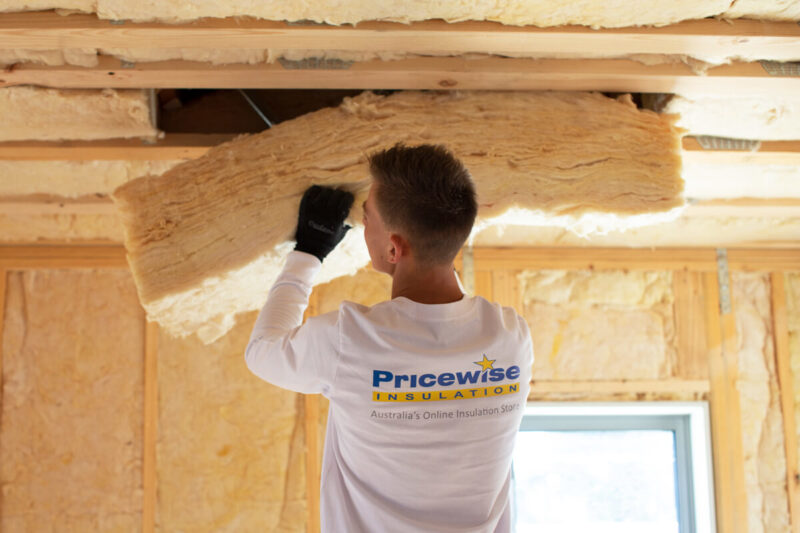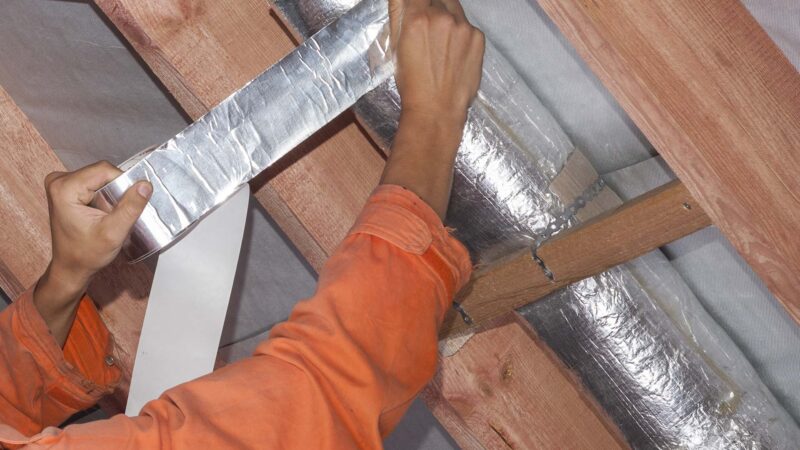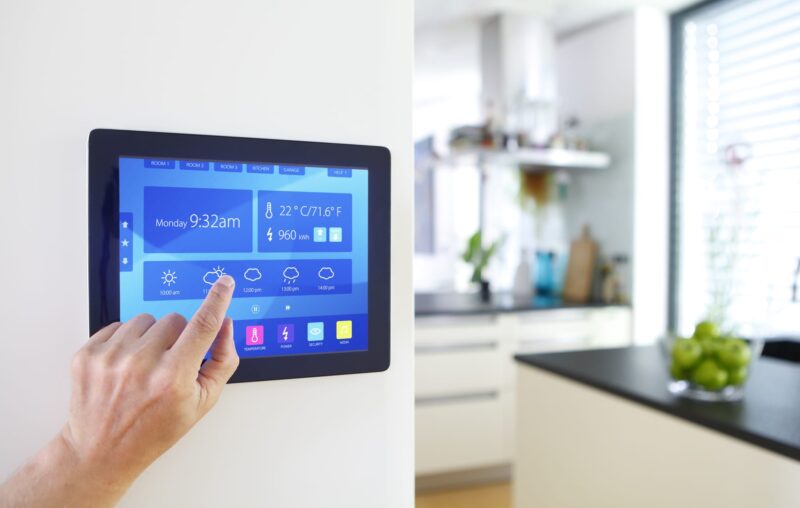When the summer finally comes around, the last thing on most people’s minds is winter and high energy bills. However, the sunny summer months are an ideal time to implement some changes around your home that can lead to big savings on your energy costs when the cold weather returns.
Taking some time for preparation and home improvements over the summer holidays can make next winter much more affordable and comfortable.
Install New Double-Glazed Windows
One of the best upgrades you can make to save on winter heating is installing new double-glazed windows, if your home currently has single-pane windows. Double glazing consists of two panes of glass with air or gas sealed tightly between them, acting as excellent insulation.
Professionally installed double-glazed windows from thehomedesigngroup.co.uk reduce heat loss through the windows by up to 50%, saving you money. In addition, new windows will reduce outside noise and condensation on the inside of windows. Though double glazing is an investment, over the long run you will reap excellent returns with lower heating bills winter after winter.
Draught Proof Your Home

Another easy way to prepare your home during the warm months for winter is by identifying and sealing up any little cracks and gaps that allow cold air in. Go around the inside and outside of your home with an eye for openings around pipework, vents, window frames, under doors, and even the loft hatch.
Use affordable draught excluder strips, foam, caulk, and other DIY sealants to close these gaps. Preventing draughts equals less heat loss in the cold season. Also, check if your letterbox allows cold draughts in and use British Standard draught proofing behind it if needed.
Have Your Boiler Serviced
Summer is an opportune time to have your gas boiler professionally serviced to keep it running safely and efficiently. British Gas recommends having your boiler serviced once a year, ideally before winter sets in.
An inspection and servicing cleans and repairs components so your boiler has less downtime when you need the heating on during cold spells. A well-maintained, efficient boiler will save you money compared to an old, inefficient one that has high energy consumption.
Insulate Your Roof, Walls, and Floors

Another essential way to prepare for next winter is to inspect your home’s insulation in the loft space, exterior walls, and floors to see if it meets current guidelines. If not, arrange to have insulation upgraded over the summer by a registered installer.
Building regulations state 270mm thickness for loft insulation and 200mm for cavity wall insulation. Insulation essentially creates a thermal barrier reducing conducted heat transfer, so your home stays warmer in winter, cutting heating costs. Loft insulation is quick and easy to install. Cavity wall insulation involves pumped beads or foam. Solid wall insulation is more complex but still worth it long-term.
Upgrade to Energy-Efficient Appliances
Revamping your home with energy-efficient appliances is a smart move. Outdated appliances are not just relics; they are significant energy drains. Modern refrigerators, washing machines, and dishwashers come equipped with advanced technologies that minimize energy consumption.
Opting for appliances bearing the ENERGY STAR label ensures you’re choosing products that meet strict energy efficiency guidelines set by the U.S. Environmental Protection Agency. Although the upfront cost might be higher, the long-term savings on your electricity bills and the reduced environmental footprint make this upgrade a wise investment.
Seal Leaky Ducts

Your home’s heating ducts can be likened to the veins of your heating system, and just like with veins, leaks can be problematic. Unsealed ducts allow heat to escape, forcing your system to overcompensate and consume more energy. Conduct a thorough inspection of your ductwork, looking for any signs of leaks or gaps.
Using duct tape or mastic sealant to seal these breaches can significantly enhance your heating efficiency. This fix, often overlooked, can improve system performance and contribute to noticeable energy savings.
Invest in a Programmable Thermostat
A programmable thermostat is not just a control panel for your heating and cooling; it’s a tool for energy management. By allowing you to set specific temperatures for different times—lower when you’re out or asleep, and higher when you’re active at home—it ensures that you’re not wasting energy.
This smart adjustment can translate into substantial savings on your energy bills, making a programmable thermostat a worthy addition to your home’s energy-saving arsenal.
Use Energy-Efficient Lighting

Illuminating your home efficiently is as simple as switching your light bulbs. Traditional incandescent bulbs are energy hogs compared to their modern counterparts. LED (Light Emitting Diode) and CFL (Compact Fluorescent Lamp) bulbs are champions of energy efficiency, consuming a fraction of the electricity and lasting many times longer.
By replacing your old bulbs with these energy-efficient alternatives, you’ll reduce your electricity usage and the need for frequent bulb replacements, shining a light on both energy savings and environmental consciousness.
Utilize Solar Energy
Embracing solar energy is like having your personal power plant, harnessing the sun’s abundant energy. Installing solar panels on your roof can significantly cut your reliance on traditional electricity sources.
Especially beneficial during sunny winter days, solar power can provide a substantial portion of your electricity needs, decreasing your energy bills and increasing your energy independence. While the initial setup cost can be substantial, the long-term benefits and potential savings make solar energy an attractive, sustainable option for energy management.
Implement Home Automation

In the era of technology, home automation stands out as a pinnacle of energy management. Integrating a home automation system allows you unparalleled control over your home’s energy consumption. Whether it’s adjusting your heating and cooling systems, controlling your lights, or managing other home appliances, automation ensures that you’re using energy only when necessary.
Through a smartphone app or a centralized control system, you can manage your home’s energy use in real time, even when you’re miles away, making it an efficient way to minimize waste and maximize savings.
Making some upgrades to your home over the summer months, such as installing insulation, draught-proofing, double glazing, and servicing your boiler can pay off nicely when the cold weather sets in.
Being proactive by preventing heat loss through poor insulation, air leaks or an inefficient boiler will save you money on bills all winter long when you need to have the heating on constantly. Investing in your home now leads to greater comfort and affordability through the winter season. Preparing in summer makes for an energy-efficient, warmer home when temperatures drop.

